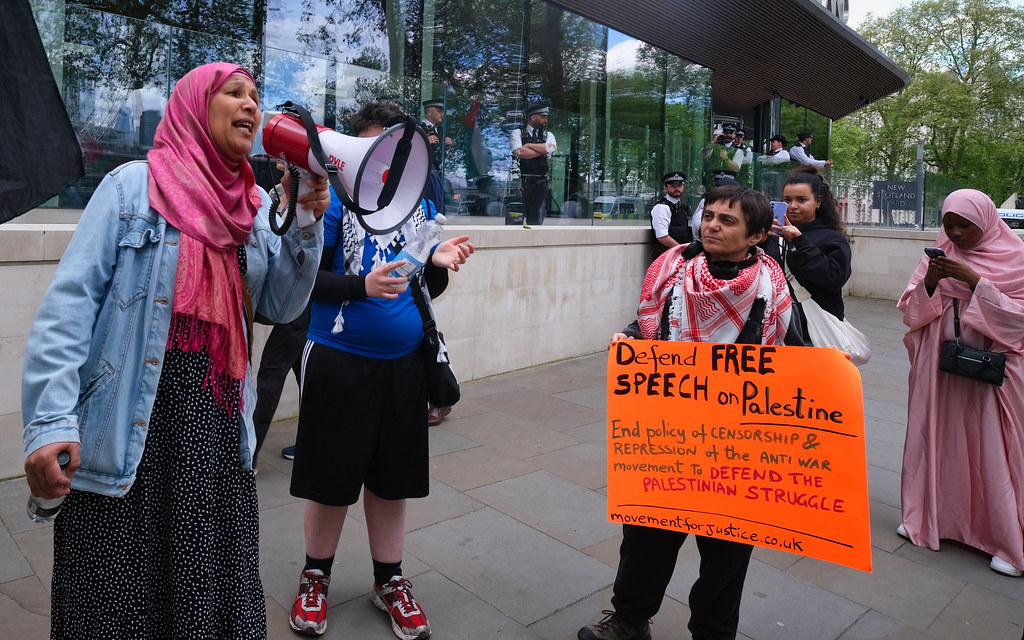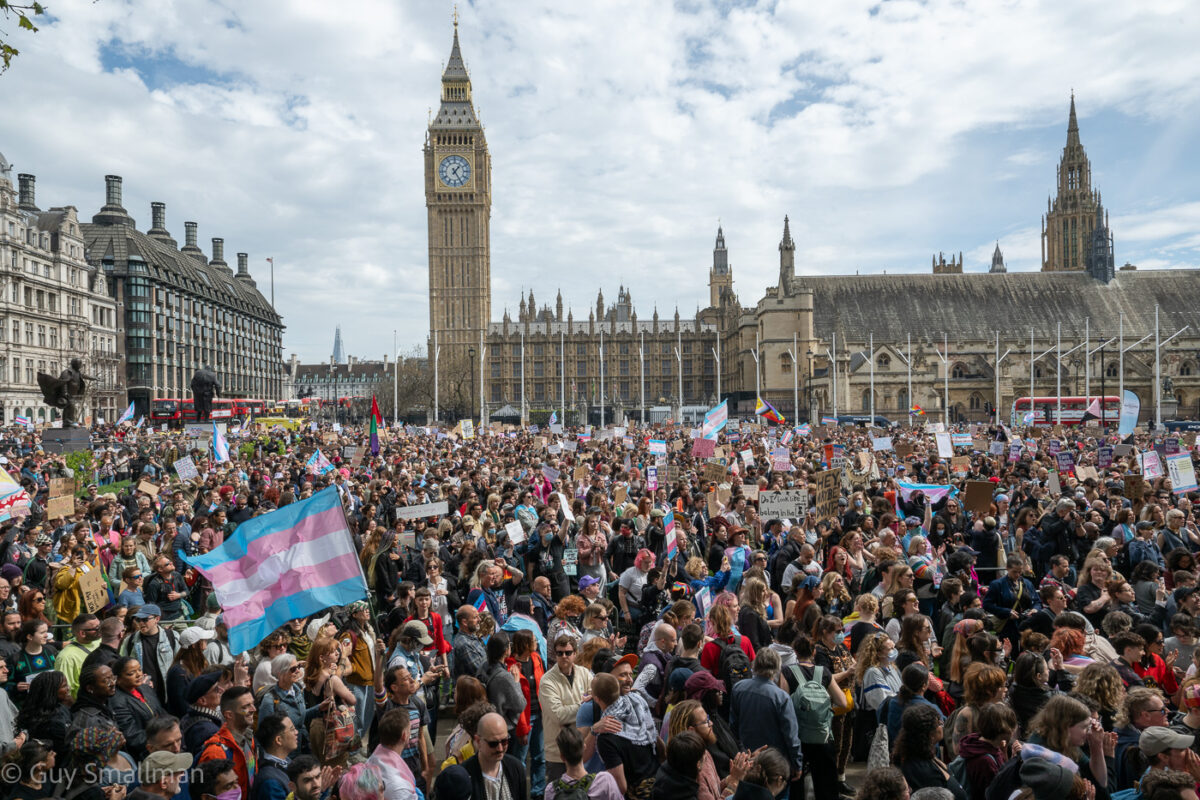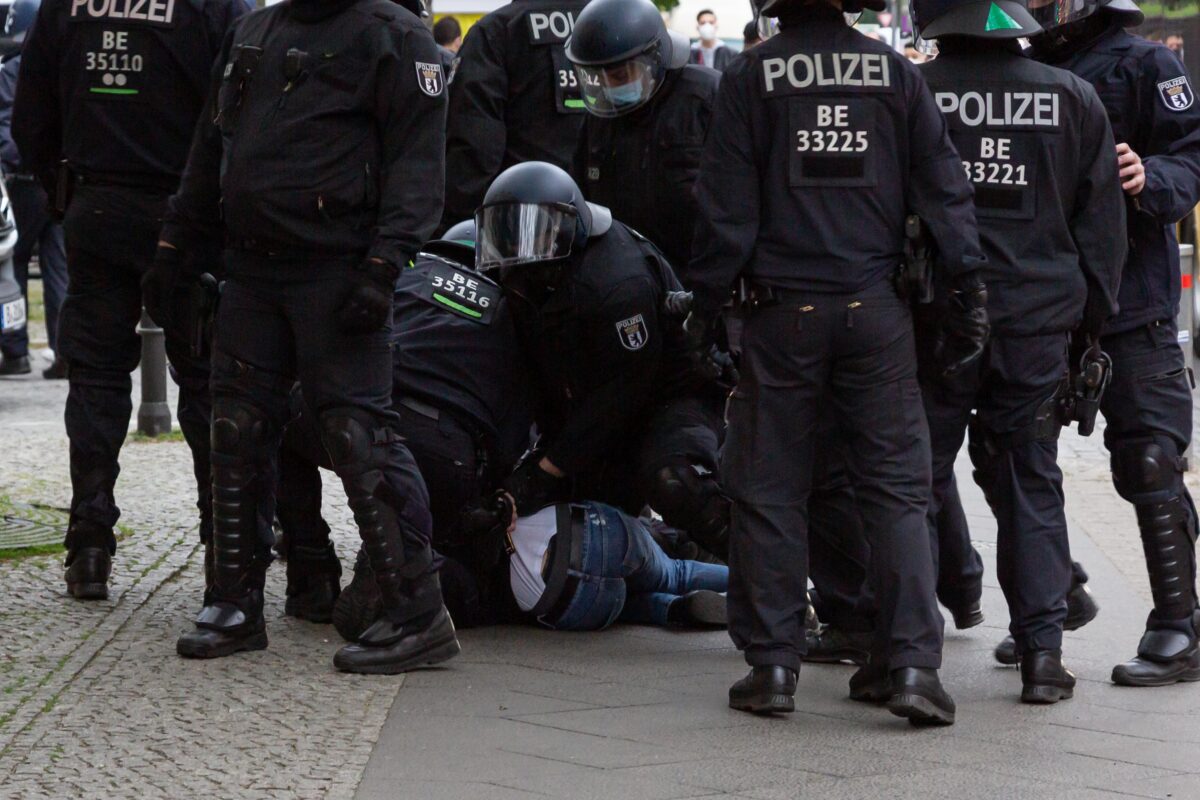Author’s note: Following the publication of this article, TU Berlin has taken down the Nahostkonflikt und Hochschule website. To be clear, this action came only after eight months of repeated appeals from students, staff, and community members urging the university to address the harmful content and lack of balance on the page. It was only once the article made the university’s inaction public, and reputational consequences became unavoidable, that any steps were finally taken.
The Technische Universität Berlin (TU Berlin) published a resource page titled Nahostkonflikt und Hochschule (Middle East Conflict and Higher Education), in which it claims to have compiled a selection of materials and background information for university teaching on “how to deal with the consequences of the Hamas attack on Israel and the Middle East conflict”. But what it actually promotes is a narrow, politically charged narrative that is not only academically unsound but deeply racist and, at points, even antisemitic.
One of the central documents still available on the site is “Israelbezogener Antisemitismus” (Antisemitism related to Israel), published by the Bundeszentrale für politische Bildung (Federal Agency for Civic Education). The document, which claims to clarify the distinction between legitimate criticism of Israeli policies and antisemitic rhetoric, includes statements such as “selbstverständlich können auch Juden unter Bezug auf Israel Antisemitismus verbreiten” (Of course Jews can also spread antisemitism with reference to Israel), a claim that ignores the long history and identities of Jewish people who have spoken out against Zionism. The document also equates Israel with Judaism, thereby singularising which opinions by Jewish people are acceptable. It promotes the idea that the only “good” Jew is one who aligns with the state’s definition, a dangerous precedent, especially in Germany, where the state has a history of imposing narrow, exclusive definitions of Jewish identity with horrific consequences.
It goes even further, suggesting that advocating for Palestinians’ right to return, is inherently antisemitic, even though it is protected under international and human rights law, and has been reaffirmed in many UN resolutions since 1948. The document also labels “Kindermörder Israel” (Child Killer Israel) as inherently antisemitic, despite the fact that, according to UNICEF at least 15,000 children were killed by Israel during the ongoing genocide, and that, between 2015 and 2022, the United Nations attributed more than 8,700 child casualties to Israeli forces — a figure cited by Human Rights Watch when the UN secretary-general officially added the Israeli military to the “list of shame” in 2024 for grave violations against children in armed conflict. Finally, terms like “apartheid” or “colonial state” are also labeled antisemitic, even though these are widely used in international human rights reporting, as well as the UN and the ICJ. To dismiss these terms as antisemitic outright not only ignores this international consensus, it shuts down legitimate human rights and legal criticism altogether, denying Palestinians the ability to call for justice, or even to express grief and anger over the brutality and oppression they face.
Taken together, these examples show that by promoting this material for university teaching, the TU Berlin is encouraging lecturers to completely suppress any expression of solidarity with Palestinians, who are currently experiencing genocide in Palestine. Rarely have we seen such complete disregard for students’ dignity and freedom, and it is hard not to notice that this treatment seems to apply only when the students in question are Palestinian or supportive of them.
What makes this even more outrageousis that TU Berlin is home to the Zentrum für Antisemitismusforschung (ZfA), a globally respected center for the study of antisemitism and, according to its own mission, of “other manifestations of hatred such as antiziganism, hostility towards Muslims and Islam.” The university has direct access to scholars trained to recognize racism, exclusion, and the political misuse of antisemitism discourse. And yet, over six months after we clearly pointed out how harmful some of the documents are, including directly referencing the document “Israelbezogener Antisemitismus”, nothing has changed.
In an email we received on 21st August 2024, Vice President of TU Berlin Christian Schröder wrote in an official answer to our requests that TU Berlin had taken action and was working with full commitment to improve the page. But the same problematic texts are still online. The content has not been fixed, and no new perspectives have been added.
Even more confusing is that the page is called “Middle East Conflict and Higher Education”, but it only talks about Israel, and only from one perspective. The overwhelming majority of people in the region, who are Arab and/or Muslim, are not represented. The only document that mentions Muslims is about Islamism, which treats Muslim identity as a security threat. This singular representation of Arab and/or Muslim people reinforces the harmful Islamophobic idea of the “violent Arab”, therefore not only failing to address the discrimination they face, but amplifying it. Unsurprisingly, given this context, there’s nothing about Islamophobia, anti-Palestinian racism, or the daily reality Palestinians face under occupation, even six months after we specifically requested it from them, and more importantly, after 18 months of genocide.
This is not education. This is a dangerous and discriminatory political ideology, disguised as academic discourse. The university may point to events like Palestine Week or film screenings to claim that Palestinian narratives are tolerated. But these have been organized entirely by students, in student spaces, using student funds with no institutional support, and in spite of active barriers. And when approval was required, it was granted reluctantly or only as a legal obligation. Meanwhile, Palestinian students and allies face smear campaigns, surveillance, and police presence on campus, with no meaningful protection or response from the administration.
If the university now or in the future tries to use these student-led efforts to claim inclusivity or openness, it would be dishonest at best. And through its continued inaction, TU Berlin is not only passively overlooking all this, it is actively complicit in the erasure of Palestinian history, voices, and rights on campus. It is encouraging an environment of silencing, censorship, and fear, while giving these ideas the appearance of academic legitimacy. In doing so, it sends a message to both students and staff: speaking openly about Palestinian life and struggle is not supported, not protected, and ultimately, not welcome here.
That this is happening at a university that hosts the Zentrum für Antisemitismusforschung (ZfA), a center that claims to stand against all forms of hatred, including anti-Muslim racism, makes the silence even more disturbing. To date, we have seen no public response, no effort to intervene, no defense of the very values ZfA aims to uphold.
To us, and especially to Palestinian students on this campus, the message is clear: Palestinians are not seen as equally human, equally grievable, or equally worthy of protection.




